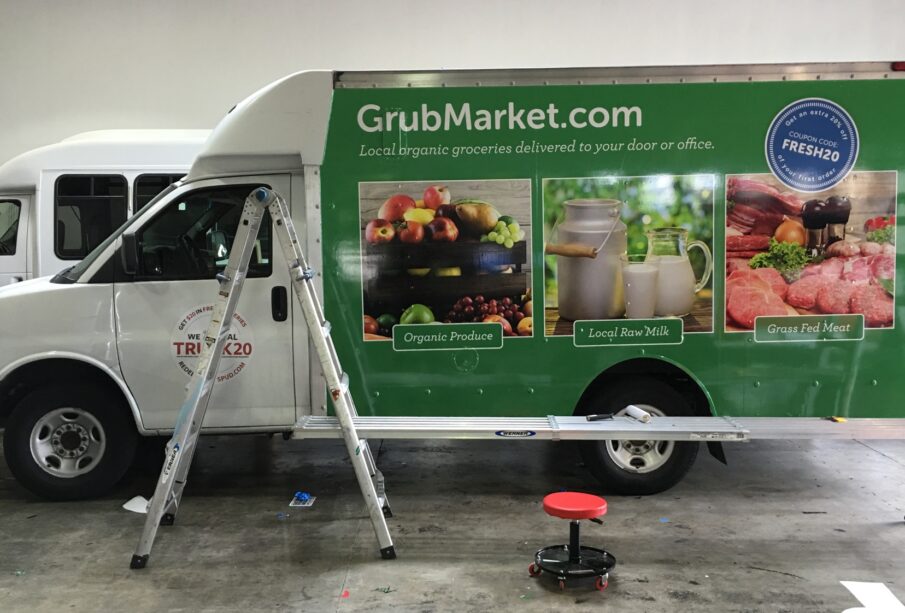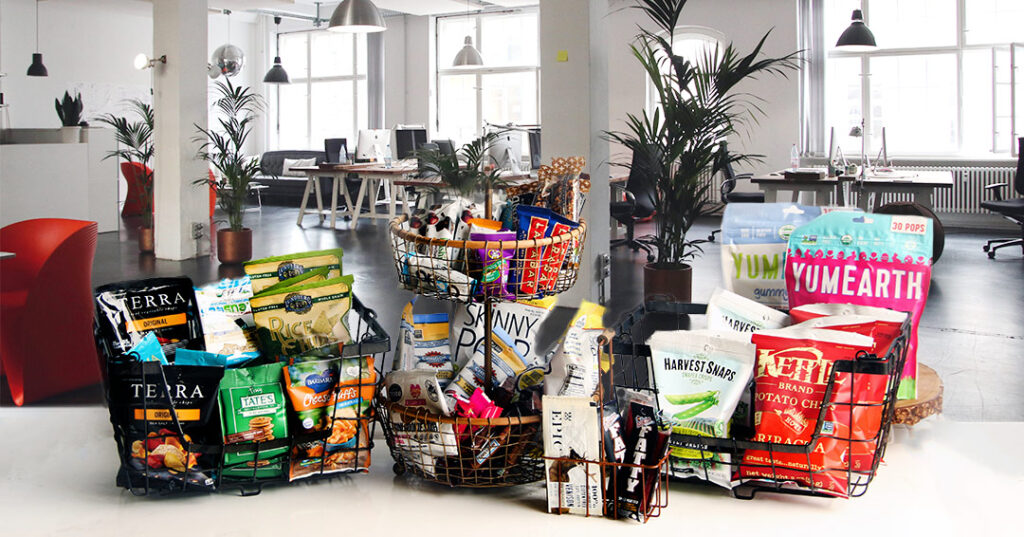GrubMarket Raises $60M as Food Delivery Stays Center Stage

Business that have leveraged innovation to make the procurement and shipment of food more available to more people have been seeing a huge rise of organization this year, as countless customers are urged (or outright mandated, due to COVID-19) to socially distance or wish to prevent the crowds of physical shopping and eating expeditions.
Today, one of the companies that are providing products and other items both to consumers and other services that are in turn offering food and groceries to them, is revealing a new round of financing as it prepares to take its next step, an IPO.
GrubMarket, which provides a B2C platform for customers to buy fruit and vegetables and other food and home items for delivery, and a B2B service where it supplies grocery shops, meal-kit companies, and other food-tech start-ups with items that they resell, is today revealing that it has raised $60 million in a Series D round of funding.
Sources near to the business validated to TechCrunch that GrubMarket — which is profitable and originally hadn’t prepared to raise more than $20 million– has now doubled its appraisal compared to its last round– sources tell us it is now in between $400 million and $500 million.
The financing is originating from funds and accounts managed by BlackRock, Reimagined Ventures, Trinity Capital Expense, Celtic House Endeavor Partners, Marubeni Ventures, Sixty Degree Capital, and Mojo Partners, together with previous investors GGV Capital, WI Harper Group, Digital Garage, CentreGold Capital, Scrum Ventures and other unnamed individuals. Past financiers also included Y Combinator, where GrubMarket was part of the Winter 2015 friend. For some context, GrubMarket last raised money in April 2019 — $28 million at a $228 million evaluation, a source says.
Mike Xu, the founder, and CEO, said that the plan remains for the company to go public (he’s talked about it before), however, considered that it’s not having difficulty raising from private markets and is currently growing at 100% over the last year, and the IPO market is less particular at the minute, he declined to put a specific timeline on when this might, in fact, occur, although he was clear that this is where his focus is in the future.
“The only success criteria of my startup career is whether GrubMarket can ultimately make $100 billion of annual sales,” he stated to me over both e-mail and in a phone conversation. “To accomplish this goal, I am ready to remain heads-down and dedicated every day until it is done, and it does not matter whether it will take me 15 years or 50 years.”
I don’t doubt that he suggests it. I’ll note that we had this hire the middle of the night his time in California, even after I asked numerous times if there wasn’t a more reasonable hour in the daytime for him to talk. (He insisted that he got his best work done at 4:30 a.m., an outcome of how a great deal of the grocery business works.) Xu on the one hand is extremely mild with a calm behavior, but do not let his quiet manner fool you. He also is focused and relentless in his work principles.
When people talk today about purchasing food, along with a traditional supermarket and other physical food markets, they significantly speak about grocery shipment business, restaurant shipment platforms, meal package services, and more that make or provide food to people by way of apps. GrubMarket has built itself as a lucrative but peaceful giant that underpins the fuel that assists business in all of these categories by turning into one of the critical business developing bridges in between food manufacturers and those that communicate with consumers.
Its opportunity can be found in the type of interruption and a gap in the market. Food production is not unlike a shipping and other older, non-tech industries, with a lot of deals couched in tradition procedures: GrubMarket has built a software application that connects the different segments of the food supply chain in a quicker and more effective method, and then provides the logistics to help it run.
To be sure, it’s a location that would have progressed despite the world health scenario, however, the increase and development of the coronavirus have absolutely “assisted” GrubMarket not just by producing more demand for provided food, however by supplying a way for those in the food supply chain to connect with less contact and more tech-fueled performance.
Sales of WholesaleWare, as the platform is called, Xu stated, have seen more than 800% growth over the in 2015, now managing “a number of numerous countless dollars of food wholesale activities” annually.
Underpinning its tech is the sheer size of the operation: economies of scale in action. The business is active in the San Francisco Bay Location, Los Angeles, San Diego, Seattle, Texas, Michigan, Boston, and New York City (and many locations in between) and says that it currently runs some 21 warehouses across the country. Xu describes GrubMarket as a “major food provider” in the Bay Location and the rest of California, with (as one example) more than 5 million pounds of frozen meat in its east San Francisco Bay storage facility.
Its customers include more than 500 supermarket, 8,000 dining establishments, and 2,000 corporate offices, with familiar names like Whole Foods, Kroger, Albertson, Safeway, Sprouts Farmers Market, Raley’s Market, 99 Ranch Market, Blue Apron, Hey There Fresh, Fresh Direct, Imperfect Foods, Misfit Market, Sun Basket, and GoodEggs all on the list, with GrubMarket supplying them items that they resell straight, or utilize in producing their own items (like meal kits).

While much of GrubMarket’s development has been– like a great deal of its fruit and vegetables– organic, its success has assisted it likewise grow inorganically. It has made some 15 acquisitions in the last 2 years, including Boston Organics and EJ Food Supplier this year.
It’s not to say that GrubMarket has not had growing discomforts. The business, Xu said, resembled many others in the food shipment organization– “overwhelmed” at the start of the pandemic in March and April of this year. “We needed to limit our daily shipment volume in some regions, and put brand-new clients on waiting lists.” However, the B2C business grew in between 300% and 500% depending upon the marketplace. Xu stated things soothed down by Might and even as some B2B clients never returned after cities were locked down, as a classification, B2B has mostly recovered, he stated.
Remarkably, the start-up itself has taken a really proactive method in order to limit its own employees’ and consumers’ direct exposure to COVID-19, doing as much testing as it could– tests have been, as we all understand, in extremely short supply– in addition to a great deal of social distancing and cleaning operations.
“There have been no required about masks, however, we supplied them extensively,” he said.
So far it appears to have worked. Xu said the company has only discovered “a couple of staff members” that were positive this year. In one case in April, a case was found not through a test (which it didn’t have, this happened in Michigan) but through a regular check and discovering a worker showing signs, and its reaction was swift: the centers were locked down for 2 weeks and sanitized, regardless of this occurring in among the busiest months in the history of the business (and the food supply sector total).
That’s notable leadership at a time when it seems like a lot of leaders have failed us, which only helps to strengthen the company’s strong development.
“Having a tested track record of sustained hypergrowth and net earnings success, GrubMarket sticks out as an extremely uncommon Silicon Valley start-up in the food innovation and e-commerce sector,” stated Jay Chen, handling partner of Celtic House Venture Partner. “Scaling over 15x in 4 years, GrubMarket’s creativity and capital performance are unmatched by anybody else in this space. Mike’s team has done an amazing job growing the business attentively and sustainably. We are happy to be a partner in the company’s fast across the country growth and excited by the strong momentum of WholesaleWare, their SaaS suite, which is the best we have seen in space.” Updated with more information on the appraisal.














